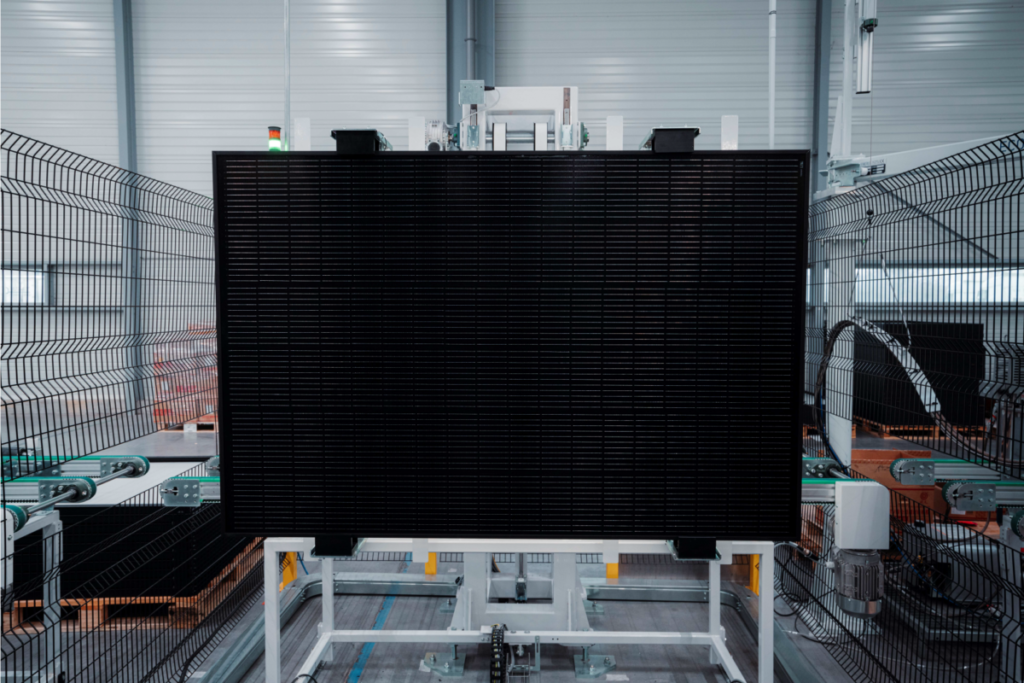
The European Solar Manufacturing Council (ESMC) has published new recommendations for the EU’s Net Zero Industry Act (NZIA) to support solar manufacturers on the continent.
A paper published by the ESMC Working Group praises the NZIA but says there are gaps which need to be filled.
Try Premium for just $1
- Full premium access for the first month at only $1
- Converts to an annual rate after 30 days unless cancelled
- Cancel anytime during the trial period
Premium Benefits
- Expert industry analysis and interviews
- Digital access to PV Tech Power journal
- Exclusive event discounts
Or get the full Premium subscription right away
Or continue reading this article for free
Vincent Delaporte, lead author of the paper, said: “The NZIA is a good first step toward reshoring European solar PV manufacturing, but greater ambition is needed. We expect the new European Commission to raise its aspirations in the upcoming Clean Industrial Deal and new State Aid Regime. This will be a unique opportunity to strengthen the European industrial framework, particularly for solar PV.”
The paper called for an expansion of support for solar manufacturing projects which do not directly benefit from state-sponsored tenders and auctions.
The NZIA will include “non-price” criteria for state procurements designed to provide a market for European products, but the ESMC said that this would only represent a minimum of 6.4GW manufacturing capacity under the NZIA requirements. This is far below the EU’s European Solar Industry Alliance (ESIA) goal of 30GW manufacturing capacity by 2030.
The paper suggested that all renewable energy projects receiving public funding, either from European or state banks, should incorporate “resilience and sustainability criteria” to include domestically produced products.
It also called for a differentiated interest rate for projects using European hardware and lowering or exempting European-made renewable energy products from value added tax (VAT).
The paper said that European manufacturers face challenges for both operational expenditure (OPEX) and capital expenditure (CAPEX) compared with competitive companies in China and the US. It recommended enabling member states to provide specific operational support, like lower electricity prices to strategic industries, to compete against the operational support that Chinese PV manufacturers receive.
It also called for the introduction of a Climate Tech Sovereignty Fund to support greenfield manufacturing startups with CAPEX. It said: “The [European] Innovation fund itself doesn’t really answer the needs of deeptech start-ups, as it requests a strong financial credibility, often hard to achieve at early stage.”
The head of the ESMC, Johan Lindahl, spoke with PV Tech Premium earlier this year about the importance of OPEX support for Europe’s PV manufacturers.
CBAM and raw materials
Beyond direct financial measures, the paper also called on legislators to “create a level playing field in the EU market” by extending the Carbon Border Adjustment Mechanism (CBAM) to include solar modules.
The CBAM imposes tariffs on carbon-intensive imports to the EU based on their carbon footprint. The ESMC said that, under current law: “European solar manufacturers will be hit by CBAM if they import components to assemble solar modules, such as aluminum or glass, whereas Chinese companies selling whole modules from China will pay no carbon border fee at all.”
It also said that the import tax on raw materials for solar manufacturing, like solar-grade glass, should be aligned with taxes on imported solar modules. Manufacturers currently pay an import tax on solar glass or other components shipped to Europe, but completed modules containing those same materials are not taxed in the same way.






